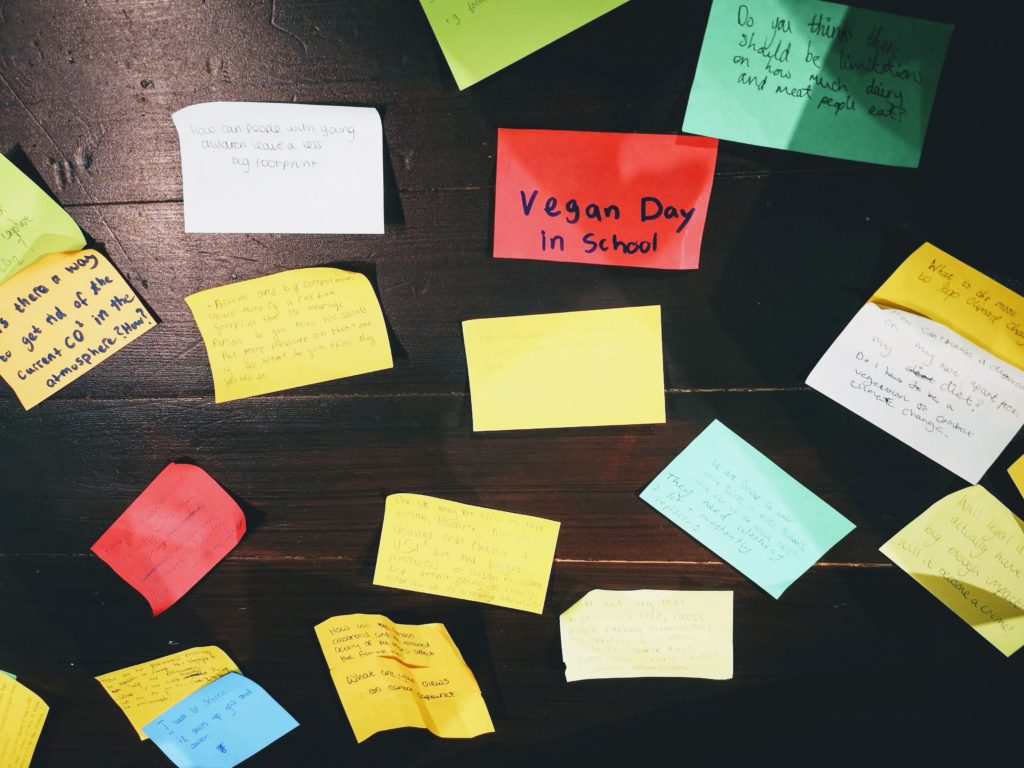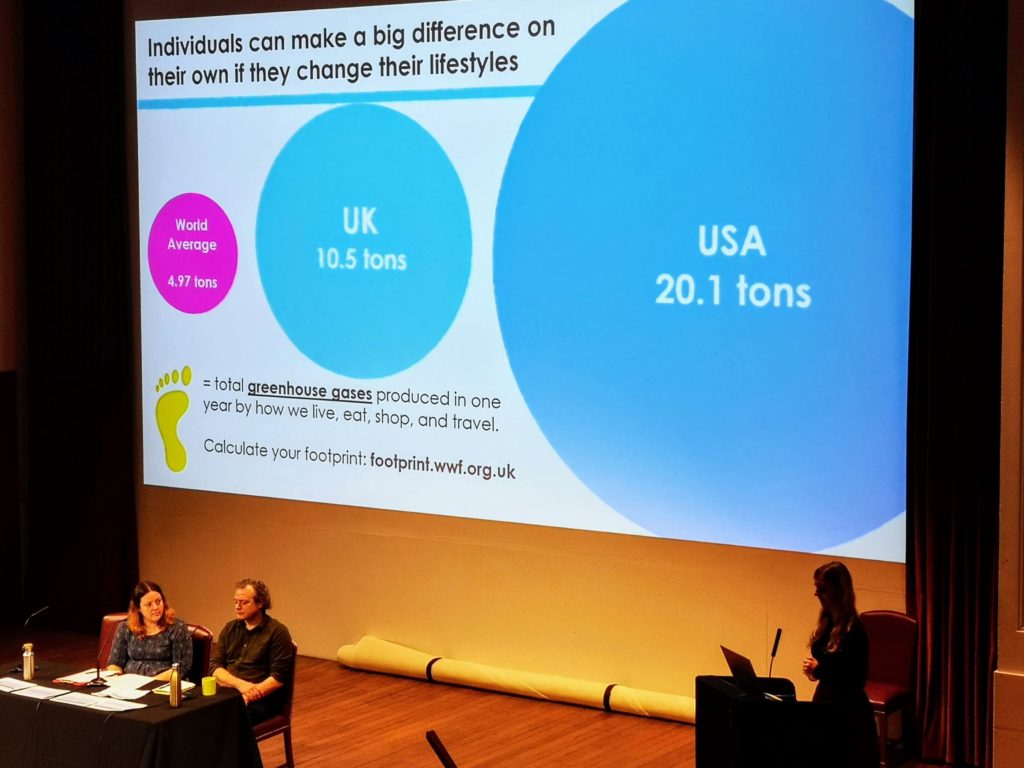A few days before finishing school for their Christmas break, 120 key stage four pupils took part in Cardiff Museum’s annual debate day, organised in partnership with First Campus. This year the theme was ‘Making Personal Choices about Climate Change’ and CAST researchers were invited to get involved.

Very often, action on climate change is framed as a choice between individual actions, such as driving less or choosing a plant-based diet, and collective action to tackle government inaction and corporate behaviour, such as strikes, boycotts, or activism. Critics of individual action suggest that focussing on our own behaviour might make us feel better, or less guilty, but does nothing to deal with the underlying causes of the issue, and may even be a distraction. Others would argue that corporate behaviour and government policy are driven by individual consumer choices and that demanding systemic change without first making relevant changes in our own lives undermines those demands.
We wanted to avoid perpetuating the idea of ‘individual vs collective’ so, with guidance from the museum education team, we decided to frame the debate around the question of how a young person can make a meaningful difference, as an individual as well as part of a wider collective movement.
On arrival at the debate students were asked to respond to a four statements concerning climate action. The debate was then opened by Helen Obee Reardon who welcomed the audience and noted that “a few years ago we may have been here debating the science of climate change but we know now that the science is settled. So today we’re discussing climate action.”
Students heard first from Professor Carrie Lear from Cardiff University’s School of Earth and Ocean Sciences who provided an overview of the evidence for global heating and described some of the impacts. CAST’s Dr Caroline Verfürth then spoke on the impact of individual choices in the areas of food, fashion, and travel, explaining that here in the UK we need to shrink our individual footprints from 10.5 tons of CO2e per year to just 1.6 tons, or 1,625 kilograms.

Dr Stuart Capstick tackled the question of collective action as a way of creating wider social change, discussing plant based diets and flygskam, the phenomenon of ‘flight shame’ that contributed to an 8% increase in rail travel in Sweden last year. He also highlighted the power of talking about climate change, an action that feels small, with an impact that’s hard to see or quantify, but one with the potential to accelerate social change.
Having heard from all three researchers students then had the opportunity to discuss what they’d heard in their groups, submit questions, and respond a second time to the statements they were presented with at the start of the day. Here’s how their responses changed before and after the debate.

A Q&A session was packed with thoughtful questions from the audience, including the following:
Do you believe world leaders are doing enough to tackle climate change? If not, what advice would you give them?
37% of methane in our atmosphere comes from cattle production. Why aren’t politicians and influencers talking about vegetarian and vegan diets?
If we eat less meat what happens to the farmers and what happens to the cows and the sheep?
Is it realistic to think the UK (and other countries) can reduce our emissions enough?
Is religion is a contributing factor in the lack of acknowledgement of climate change?
Why should we have to clean up the mess that older generations made, especially if we won’t see the benefits in our lifetime?
People feel safer and more comfortable in their habits. How can we help them change?
How effective do you think protests are in raising awareness?
The students spent the rest of the day at the museum, taking part in activities and visiting an exhibition created by the museum’s youth forum which explores the climate emergency through the lense of fast fashion, developed to accompany Dippy the Diplodocus’s stay in Cardiff.


